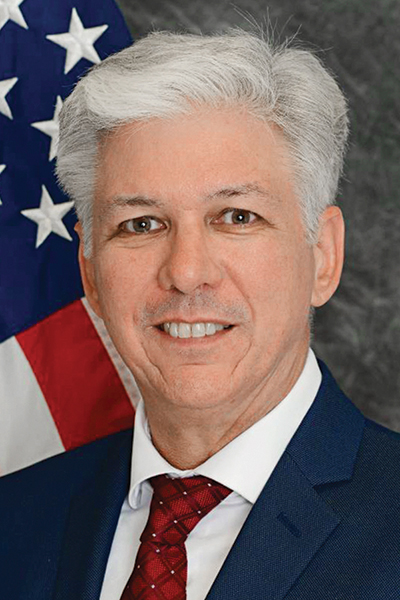Director’s Letter
V13N2
Welcome to the 50th edition of per Concordiam. This long-planned issue is devoted to energy security, which affects every facet of international relations. It is a major concern for people, states and the global economy.
The complexities of the subject are beyond the reach of a single magazine issue. Thus, the focus here remains on Europe and primarily on natural gas as a source of energy, with an emphasis on the problems created by Russia’s war on Ukraine — and hopefully some solutions.
This shifting European relationship with natural gas is therefore a major theme for our authors. Drs. András Deák and John Szabo, for example, point to the necessity for a credible EU plan to decarbonize natural gas consumption. They ask: Should our understanding of energy security be reconsidered? Also on the security front, Martin Vladimirov shows how the invasion of Ukraine exposed Europe’s energy vulnerabilities. Key consumers such as Germany and Italy have accelerated efforts to decouple from Russian energy, yet many nations in Central and Eastern Europe remain dependent. The countries reliant on Russia’s natural resources include those of the Visegrád Group — the Czech Republic, Hungary, Poland and Slovakia — whose energy infrastructure was linked to the former Soviet Union. Paolo Zucconi writes of the “deep division” within the group. Hungary and Slovakia, for example, continue to import Russian gas; the Czech Republic and Poland do not.
And what of a beleaguered Ukraine’s response to its energy challenges? Drs. Natalia Slobodian and Svitlana Andrushchenko note that Kyiv has the potential to significantly contribute to European and global energy security. They write: “The Ukrainian experience in recovery and reconstruction, based on principles of decarbonization, sustainability, climate and a nature-valued approach, is unparalleled. This conflict — and lessons learned from it — can be a catalyst for Europe and other regions to accelerate their energy transitions.”
As for energy transition, longtime per Concordiam contributor Dr. Pál Dunay illustrates how power generated from solar and wind — though still a small percentage of energy supply when compared with fossil fuels — is on the rise as nations continue their move to renewable energy.
As our authors document, there have been essential lessons learned in the past three years. The first is that the West can survive without Russian hydrocarbons. Second, states can overcome shocks if they maintain unity and are ready to accept sacrifices. Third, the entire process demonstrates good news about the resilience of our societies.
Still, separate from the severance of dependency on Russian hydrocarbon energy, countries must continue to reduce dependence on environmentally damaging energy sources and contaminating technologies. The West is leading the way, but the global process requires the support of every major producer and consumer alike. This needed collaboration may prove unusually difficult amid strained political relations.
One of our greatest challenges is achieving a secure and environmentally friendly energy supply. I hope you find this contribution to the conversation to be edifying and thought-provoking.
Sincerely,
Barre R. Seguin
Director

Barre R. Seguin retired from the U.S. Air Force as a major general in October 2020 after more than 31 years of active service. His last assignment was as the Deputy Chief of Staff, Strategic Employment, Supreme Headquarters Allied Powers Europe, Belgium. He entered active duty in 1989 as a distinguished graduate of the Reserve Officer Training Corps after graduating from the State University of New York at Potsdam. His flying assignments included serving as a flight examiner, instructor pilot, wing chief of safety and operations officer, with commands at the squadron, group, wing, and Air and Space Expeditionary Task Force levels. His command and staff positions included Commander, 9th Air and Space Expeditionary Task Force-Afghanistan and the NATO Air Command-Afghanistan, Kabul, Afghanistan; Director, Strategy, Engagement, and Programs, U.S. Africa Command, Stuttgart, Germany; Commander, 31st Fighter Wing, Aviano Air Base, Italy; and Inspector General, Headquarters Air Combat Command.
per Concordiam, a U.S. European Command publication in coordination with the George C. Marshall European Center for European Studies


